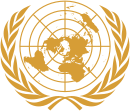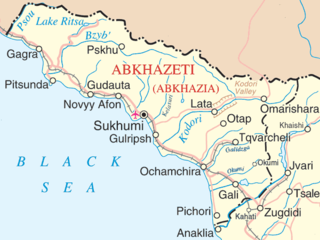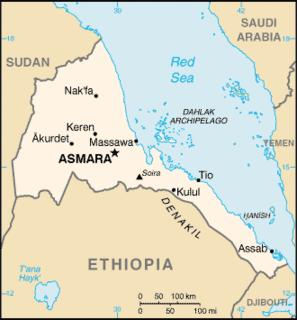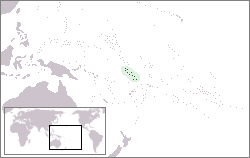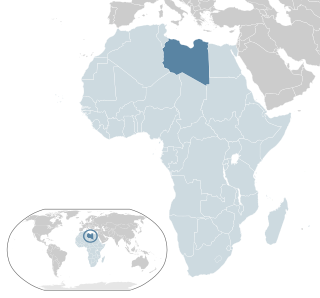| Part of a series on the |
| UN Security Council resolutions |
|---|
| Permanent members |
| Resolutions 1 to 1000 |
| Resolutions 1001 to 2000 |
| Resolutions 2001 to 3000 |
| Resolutions by topic |
| Vetoed resolutions |
| List of vetoes · Power of veto |
| UN Security Council UNBISnet · Wikisource |
This is a list of United Nations Security Council Resolutions 2401 to 2500 adopted between 24 February 2018 and 4 December 2019.
| Resolution | Date | Vote | Concerns |
|---|---|---|---|
| 2401 | 24 February 2018 | 15–0–0 | Situation in the Middle East (Syrian Civil War) |
| 2402 | 26 February 2018 | 15–0–0 | Renewing sanctions against Yemen |
| 2403 | 28 February 2018 | Adopted without vote | Date of an election to fill a vacancy in the International Court of Justice |
| 2404 | 28 February 2018 | 15–0–0 | The situation in Guinea-Bissau |
| 2405 | 8 March 2018 | 15–0–0 | The situation in Afghanistan |
| 2406 | 15 March 2018 | 15–0–0 | Reports of the Secretary-General on the Sudan and South Sudan |
| 2407 | 21 March 2018 | 15–0–0 | Non-proliferation/Democratic People's Republic of Korea |
| 2408 | 27 March 2018 | 15–0–0 | The situation in Somalia |
| 2409 | 27 March 2018 | 15–0–0 | The situation concerning the Democratic Republic of the Congo |
| 2410 | 10 April 2018 | 13–0–2 (abstentions: China and Russian Federation) | The question concerning Haiti (MINUJUSTH) |
| 2411 | 13 April 2018 | 15–0–0 | Reports of the Secretary-General on the Sudan and South Sudan |
| 2412 | 23 April 2018 | 15–0–0 | Reports of the Secretary-General on the Sudan and South Sudan |
| 2413 | 26 April 2018 | 15–0–0 | Post-conflict peacebuilding |
| 2414 | 27 April 2018 | 12–0–3 (abstentions: China, Ethiopia, Russian Federation) | The situation concerning Western Sahara |
| 2415 | 15 May 2018 | 15–0–0 | The situation in Somalia |
| 2416 | 15 May 2018 | 15–0–0 | Reports of the Secretary-General on the Sudan and South Sudan |
| 2417 | 24 May 2018 | 15–0–0 | Protection of civilians in armed conflict |
| 2418 | 31 May 2018 | 9–0–6 (abstentions: Bolivia, China, Equatorial Guinea, Ethiopia, Kazakhstan, Russian Federation) | Reports of the Secretary-General on the Sudan and South Sudan |
| 2419 | 6 June 2018 | 15–0–0 | Maintenance of international peace and security |
| 2420 | 11 June 2018 | 15–0–0 | The situation in Libya |
| 2421 | 14 June 2018 | 15–0–0 | The situation concerning Iraq |
| 2422 | 27 June 2018 | 14–0–1 (abstention: Russian Federation) | International Residual Mechanism for Criminal Tribunals |
| 2423 | 28 June 2018 | 15–0–0 | The situation in Mali |
| 2424 | 29 June 2018 | 15–0–0 | The situation concerning the Democratic Republic of the Congo |
| 2425 | 29 June 2018 | 15–0–0 | Reports of the Secretary-General on the Sudan and South Sudan |
| 2426 | 29 June 2018 | 15–0–0 | The situation in the Middle East |
| 2427 | 9 July 2018 | 15–0–0 | Children and armed conflict |
| 2428 | 13 July 2018 | 9–0–6 (abstentions: Bolivia, China, Equatorial Guinea, Ethiopia, Kazakhstan, Russian Federation) | Reports of the Secretary-General on the Sudan and South Sudan |
| 2429 | 13 July 2018 | 15–0–0 | Reports of the Secretary-General on the Sudan and South Sudan |
| 2430 | 26 July 2018 | 15–0–0 | Renewal of the UNFICYP mandate until 31 January 2019 (Situation in Cyprus) |
| 2431 | 30 July 2018 | 15–0–0 | Renewal of the AMISOM mandate until 31 May 2019 |
| 2432 | 30 August 2018 | 15–0–0 | The situation in Mali |
| 2433 | 30 August 2018 | 15–0–0 | Extends mandate of the United Nations Interim Force in Lebanon |
| 2434 | 13 September 2018 | 15–0–0 | Extends mandate of the United Nations Support Mission in Libya |
| 2435 | 13 September 2018 | 15–0–0 | Extends mandate of the United Nations Verification Mission in Colombia [1] |
| 2436 | 21 September 2018 | 15–0–0 | United Nations peacekeeping operations |
| 2437 | 3 October 2018 | 15–0–0 | Maintenance of international peace and security |
| 2438 | 11 October 2018 | 15–0–0 | Reports of the Secretary-General on the Sudan and South Sudan |
| 2439 | 30 October 2018 | 15–0–0 | The situation concerning the Democratic Republic of the Congo |
| 2440 | 31 October 2018 | 12–0–3 (abstentions: Bolivia, Ethiopia, Russian Federation) | The situation in Western Sahara |
| 2441 | 5 November 2018 | 13–0–2 (abstentions: China and Russian Federation) | The situation in Libya |
| 2442 | 6 November 2018 | 15–0–0 | The situation in Somalia |
| 2443 | 6 November 2018 | 15–0–0 | The situation in Bosnia and Herzegovina |
| 2444 | 14 November 2018 | 15–0–0 | The situation in Somalia |
| 2445 | 15 November 2018 | 15–0–0 | Reports of the Secretary-General on the Sudan and South Sudan |
| 2446 | 15 November 2018 | 15–0–0 | Extends mandate of the United Nations Multidimensional Integrated Stabilization Mission in the Central African Republic |
| 2447 | 13 December 2018 | 15–0–0 | United Nations peacekeeping operations |
| 2448 | 13 December 2018 | 13–0–2 (abstentions: China and Russian Federation) | The situation in the Central African Republic |
| 2449 | 13 December 2018 | 13–0–2 (abstentions: China and Russian Federation) | The situation in the Middle East |
| 2450 | 21 December 2018 | 15–0–0 | Extends mandate of the United Nations Disengagement Observer Force |
| 2451 | 21 December 2018 | 15–0–0 | The situation in the Middle East |
| 2452 | 16 January 2019 | 15–0–0 | Establishing the United Nations Mission to support the Hodeidah Agreement |
| 2453 | 30 January 2019 | 15–0–0 | The situation in Cyprus |
| 2454 | 31 January 2019 | 15–0–0 | The situation in the Central African Republic |
| 2455 | 7 February 2019 | 15–0–0 | Reports of the Secretary-General on the Sudan and South Sudan |
| 2456 | 26 February 2019 | 15–0–0 | The situation in Yemen |
| 2457 | 27 February 2019 | 15–0–0 | Cooperation between the United Nations and regional and sub-regional organizations in maintaining international peace and security |
| 2458 | 28 February 2019 | 15–0–0 | The situation in Guinea-Bissau |
| 2459 | 15 March 2019 | 14–0–1 (abstention: Russian Federation) | Reports of the Secretary-General on the Sudan and South Sudan |
| 2460 | 15 March 2019 | 15–0–0 | The situation in Afghanistan |
| 2461 | 27 March 2019 | 15–0–0 | The situation in Somalia |
| 2462 | 28 March 2019 | 15–0–0 | Threats to international peace and security caused by terrorist acts |
| 2463 | 29 March 2019 | 15–0–0 | The situation concerning the Democratic Republic of the Congo |
| 2464 | 10 April 2019 | 15–0–0 | Non-proliferation/Democratic People's Republic of Korea |
| 2465 | 12 April 2019 | 15–0–0 | Reports of the Secretary-General on the Sudan and South Sudan |
| 2466 | 12 April 2019 | 13–0–2 (abstentions: Dominican Republic and Russian Federation) | The question concerning Haiti |
| 2467 | 23 April 2019 | 13–0–2 (abstentions: China and Russian Federation) | Women and peace and security |
| 2468 | 30 April 2019 | 13–0–2 (abstentions: Russian Federation and South Africa) | The situation concerning Western Sahara |
| 2469 | 14 May 2019 | 15–0–0 | Reports of the Secretary-General on the Sudan and South Sudan |
| 2470 | 21 May 2019 | 15–0–0 | The situation in Iraq |
| 2471 | 31 May 2019 | 10–0–5 (abstentions: China, Côte d'Ivoire, Equatorial Guinea, Russian Federation, South Africa) | Reports of the Secretary-General on the Sudan and South Sudan |
| 2472 | 31 May 2019 | 15–0–0 | The situation in Somalia |
| 2473 | 10 June 2019 | 15–0–0 | The situation in Libya |
| 2474 | 11 June 2019 | 15–0–0 | Protection of civilians in armed conflict - Missing persons in armed conflict. |
| 2475 | 20 June 2019 | 15–0–0 | Protection of civilians in armed conflict |
| 2476 | 25 June 2019 | 13–0–2 (abstentions: China and Dominican Republic) | The question concerning Haiti |
| 2477 | 26 June 2019 | 15–0–0 | The situation in the Middle East |
| 2478 | 26 June 2019 | 15–0–0 | The situation concerning the Democratic Republic of the Congo |
| 2479 | 27 June 2019 | 15–0–0 | Reports of the Secretary-General on the Sudan and South Sudan |
| 2480 | 28 June 2019 | 15–0–0 | The situation in Mali |
| 2481 | 15 July 2019 | 15–0–0 | The situation in the Middle East |
| 2482 | 19 July 2019 | 15–0–0 | Threats to international peace and security |
| 2483 | 25 July 2019 | 15–0–0 | The situation in Cyprus |
| 2484 | 29 August 2019 | 15–0–0 | The situation in Mali |
| 2485 | 29 August 2019 | 15–0–0 | The situation in the Middle East |
| 2486 | 12 September 2019 | 15–0–0 | The situation in Libya |
| 2487 | 12 September 2019 | 15–0–0 | Extends Mandate of the United Nations Verification Mission in Colombia |
| 2488 | 12 September 2019 | 15–0–0 | The situation in the Central African Republic |
| 2489 | 17 September 2019 | 15–0–0 | The situation in Afghanistan |
| 2490 | 20 September 2019 | 15–0–0 | Threats to international peace and security |
| 2491 | 3 October 2019 | 15–0–0 | Maintenance of international peace and security |
| 2492 | 15 October 2019 | 15–0–0 | Reports of the Secretary-General on the Sudan and South Sudan |
| 2493 | 29 October 2019 | 15–0–0 | Women and peace and security |
| 2494 | 30 October 2019 | 13–0–2 (abstentions: Russian Federation and South Africa) | The situation concerning Western Sahara |
| 2495 | 31 October 2019 | 15–0–0 | Reports of the Secretary-General on the Sudan and South Sudan |
| 2496 | 5 November 2019 | 15–0–0 | The situation in Bosnia and Herzegovina |
| 2497 | 14 November 2019 | 15–0–0 | Reports of the Secretary-General on the Sudan and South Sudan |
| 2498 | 15 November 2019 | 12–0–3 (abstentions: China, Equatorial Guinea, Russian Federation) | The situation in Somalia |
| 2499 | 15 November 2019 | 15–0–0 | Extends mandate of the United Nations Multidimensional Integrated Stabilization Mission in the Central African Republic |
| 2500 | 4 December 2019 | 15–0–0 | The situation in Somalia |
